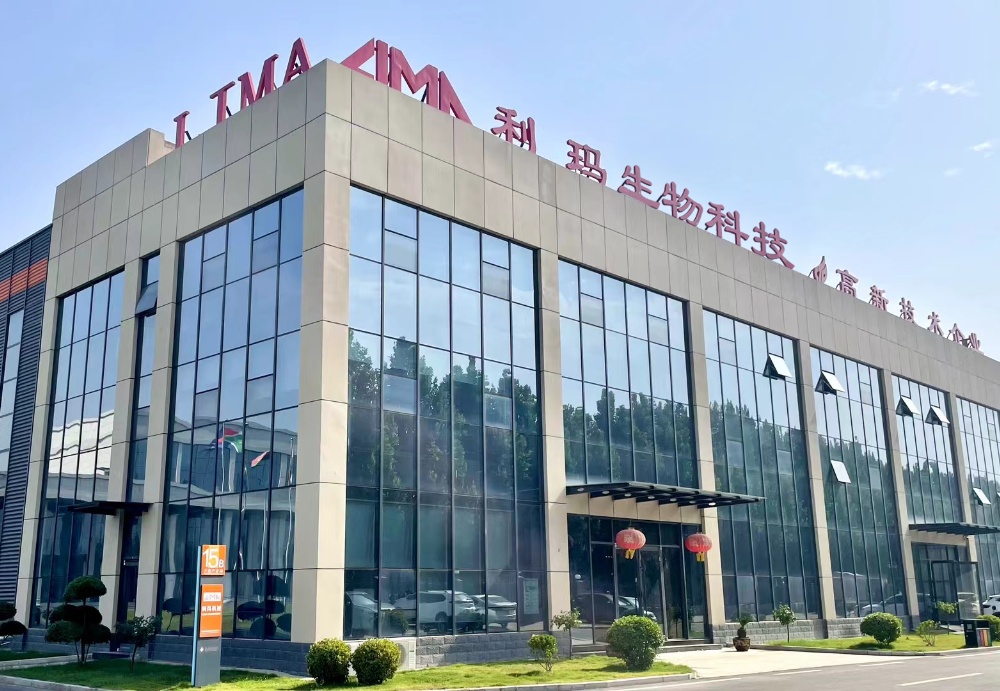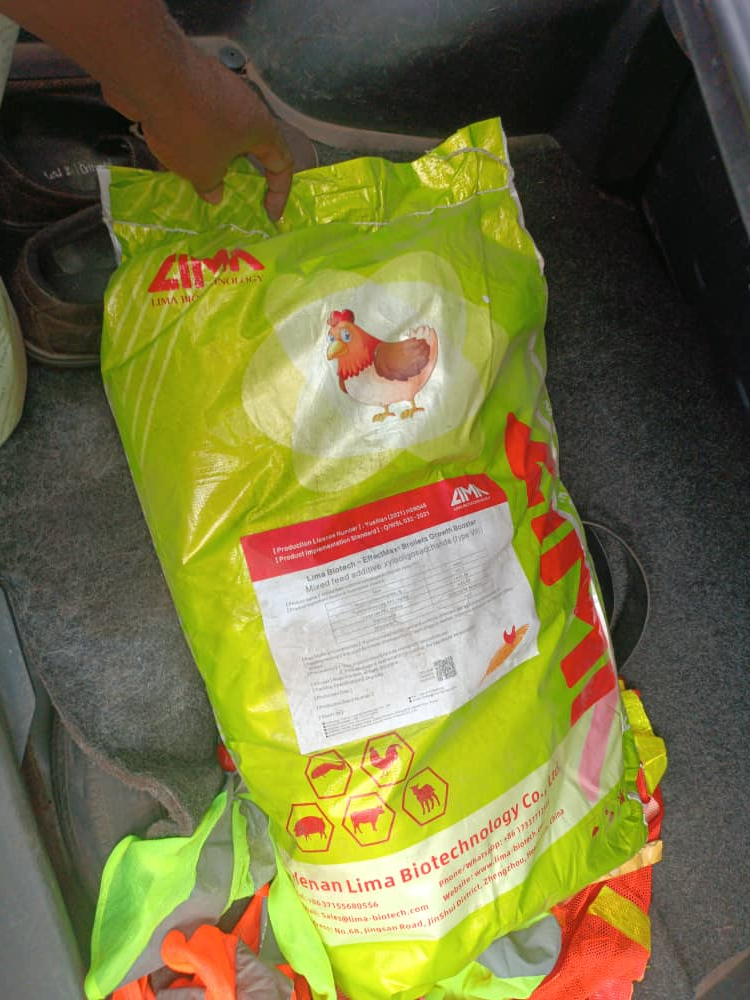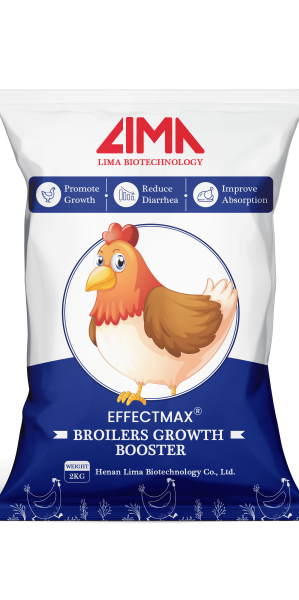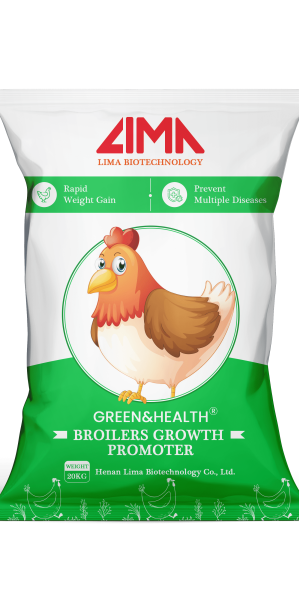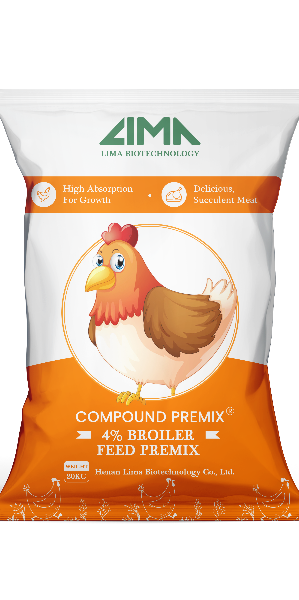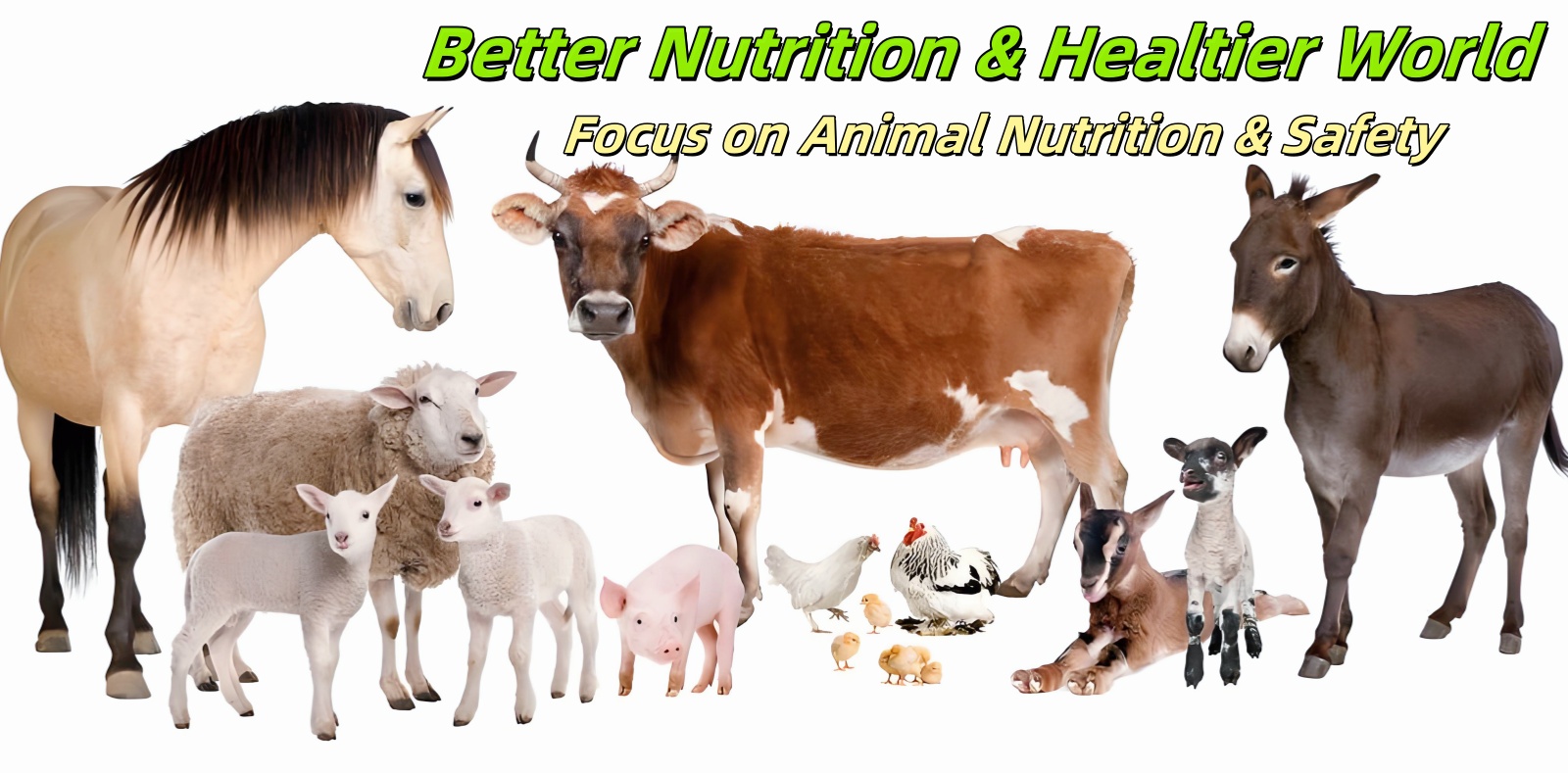In Cameroon, broiler chicken farming is a vital component of the agricultural economy, meeting local demand for poultry meat while providing farmers with stable income. However, many farmers often face challenges such as slow growth rates, high feed costs, and disease outbreaks, leading to suboptimal farming outcomes. In fact, by implementing scientific breed selection, nutritional management, environmental control, and health protection measures, combined with high-quality broiler growth promoters, farmers can significantly enhance growth rates and farming efficiency.
Selecting the Right Breed
Breed is one of the core factors determining broiler chicken growth rate. Different breeds exhibit significant differences in growth cycles, feed conversion rates, and adaptability. Under Cameroon's high-temperature, high-humidity climate conditions, selecting breeds with strong adaptability and high growth potential can reduce farming challenges from the outset.
High-Quality Broiler Chicken Breeds Suitable for Cameroon
Cobalt 500: As a globally widely raised broiler chicken breed, Cobalt 500 is characterized by fast growth rates and high feed conversion efficiency, with a body weight of 2.5–2.8 kilograms by 42 days of age. More importantly, it has strong adaptability to warm climates and can grow stably in most regions of Cameroon.
Ross 308: This breed is renowned for its efficient weight gain, with a short growth cycle (typically 40-45 days to market weight) and the ability to maintain good weight gain even with feed of average quality, making it suitable for small and medium-sized farmers in Cameroon.
Local hybrid breeds: Some farmers have developed more adaptable hybrid broiler chickens by crossbreeding imported breeds with local native chickens. While these chickens grow slightly slower than pure imported breeds, they have strong disease resistance and can tolerate coarse feed, making them suitable for regions with limited feed resources.
Considerations for Breed Selection
Regardless of the breed chosen, chicks should be purchased from reputable hatcheries to avoid introducing weak chicks carrying pathogens. Chicks from reputable sources not only have better health guarantees but also provide breed purity certificates, ensuring that the growth potential of the chickens is not compromised.
Optimizing Nutrition
During the growth process of broiler chickens, scientifically formulated feed and high-quality growth promoters can help broiler chickens gain more weight in the same amount of time. Cameroon has abundant local feed raw materials. By utilizing these resources effectively and combining them with efficient feed additives, costs can be reduced while growth rates are improved.
Scientific Combination of Local Feed Ingredients
Cameroon has abundant crop resources such as corn, sorghum, soybeans, and peanuts, which can all serve as core ingredients for broiler feed.
Protein Sources: Soybean meal, fish meal, and peanut meal are high-quality protein sources that provide the amino acids necessary for broiler growth. Avoid using moldy or low-protein inferior ingredients, as this can lead to malnutrition and stunted growth in broilers.
Energy sources: Corn and sorghum are rich in carbohydrates, serving as the primary energy source for broiler chickens. Compared to imported feed, using locally sourced corn and sorghum to formulate feed can reduce costs by over 30%.
Mineral supplementation: Add calcium carbonate and calcium hydrogen phosphate to supplement calcium and phosphorus, ensuring proper skeletal development in broiler chickens; add an appropriate amount of salt to maintain electrolyte balance within the body.
Broiler Growth Booster for Sale - Lima Biotechs
Even with the best feed ingredient combinations, poor digestion and absorption, as well as weak immunity in broiler chickens, can hinder growth rates. This is where high-quality broiler growth promoters play a crucial role. The EffectMax® series Broiler Growth Enhancer is a feed additive specifically developed to enhance broiler growth efficiency, supporting weight gain from multiple angles:
Core ingredients: Includes bioactive peptides, oligosaccharides, plant polysaccharides, and composite enzymes. These components work synergistically to comprehensively improve the growth status of broiler chickens.
Core functions:
① Enhance immunity: Strengthen the disease resistance of broiler chickens and reduce growth stagnation caused by diseases. Bioactive peptides enhance phagocyte phagocytic capacity, enabling broiler chickens to better resist common avian diseases such as avian influenza and coccidiosis in Cameroon.
② Improve intestinal health: Oligosaccharides and plant polysaccharides regulate intestinal microbiota balance, promote the proliferation of beneficial bacteria, and reduce the incidence of diarrhea. Especially in Cameroon's high-humidity environment, it effectively reduces the likelihood of nutritional diarrhea, making feed nutrients easier to absorb.
③ Promote nutrient absorption: Composite enzymes (such as phytase) break down anti-nutritional factors in feed, improving the utilization rate of phosphorus and amino acids in raw materials like corn and sorghum, ensuring every mouthful of feed is converted into body weight.
④ Stress resistance and cost reduction: They can alleviate stress responses in broiler chickens caused by high temperatures, overcrowding, etc., while improving feed conversion efficiency, reducing feed waste, and lowering the “feed-to-meat ratio” (i.e., the amount of feed required to gain 1 kilogram of weight).
Feed Usage and Management Tips
Free-choice feeding: Broiler chickens are in their growth peak period from 1 to 28 days of age, so it is essential to ensure they have constant access to feed to fully obtain the necessary nutrients.
Regular feed cleanup: Due to the high humidity in Cameroon, feed is prone to spoilage. It is necessary to remove any leftover feed daily and use clean feeders to dispense fresh feed, preventing broiler chickens from accidentally consuming spoiled feed and becoming poisoned.
Usage instructions for broiler growth enhancer: Lima Biotech recommends mixing 2 kg of EffectMax® broiler growth enhancer with 1,000 kg of feed for optimal results. Store in a sealed container after opening to prevent moisture from affecting efficacy (shelf life: 24 months).
Environmental Management
Cameroon's climate is characterized by high temperatures and humidity, with some regions experiencing heavy rainfall during the rainy season and dry conditions during the dry season. Adverse environmental conditions can lead to stress in broiler chickens, reduced feed intake, and even the onset of diseases. Optimizing the rearing environment is key to ensuring that broiler chickens grow steadily and healthily.
Controlling Temperature and Humidity
Broiler chickens are highly sensitive to temperature, and different growth stages require different temperature conditions:
Chick stage (1–14 days old): The optimal temperature is 26–30°C. If the temperature is too low, chicks may huddle together for warmth, consuming excessive energy and affecting growth.
Growing stage (15–28 days old): The optimal temperature is 24–26°C. The environmental temperature can be gradually reduced to help the chickens adapt.
Finishing stage (29 days old to slaughter): The optimal temperature is 20–24°C. High temperatures can cause reduced feed intake and even heat stress-related deaths.
Cooling techniques: Install shade nets on the roof of the chicken house to avoid direct sunlight; install ventilation fans or open windows for ventilation to promote air circulation; install misting cooling devices inside the chicken house to lower the environmental temperature. Additionally, maintain dry conditions in the chicken house by promptly removing manure and laying down bedding material (such as rice husks or sawdust) to reduce humidity and prevent bacterial growth.
Reasonably control stocking density
Excessive density can lead to competition among broiler chickens for feed and space, causing stress, fighting, and even disease transmission. It is recommended to raise 8–10 broiler chickens per square meter to ensure each chicken has sufficient activity space and feeding positions, avoiding overcrowding.
Maintain cleanliness and disinfection
Daily cleaning: Clean chicken coop manure and leftover feed daily to reduce the accumulation of harmful gases like ammonia and protect the respiratory health of broiler chickens.
Regular disinfection: After each batch of broiler chickens is shipped, thoroughly clean the chicken coop and disinfect it with a disinfectant to eliminate residual pathogens and parasite eggs, creating a sterile environment for the next batch of broiler chickens. This is particularly important in Cameroon, as it effectively prevents infectious diseases such as Newcastle disease and infectious bursal disease.
Enhancing Health Management
Once broiler chickens fall ill, their growth rate can plummet sharply, and in severe cases, they may even die. Therefore, when raising broiler chickens in Cameroon, it is essential to prioritize health management and implement preventive measures. Given the epidemiological characteristics of diseases in Cameroon, farmers must ensure proper vaccination, parasite control, and disease monitoring to maintain the healthy growth of broiler chickens.
Scientific Vaccination
Common poultry diseases in Cameroon include Newcastle disease, infectious bursal disease, and fowlpox, all of which can be prevented through vaccination:
Newcastle disease vaccine: First vaccination at 7–10 days of age, with a booster at 21–24 days of age, effectively preventing viral respiratory diseases.
Infectious bursal disease vaccine: Administered at 14–16 days of age to prevent damage to immune organs and avoid a decline in broiler immunity.
Fowlpox vaccine: Administered in advance during seasons with high mosquito activity, such as the rainy season, to prevent skin and mucous membrane infections.
It is recommended to collaborate with local veterinarians to adjust vaccination schedules based on disease prevalence in the farming region to ensure protective efficacy.
Parasite control
Parasites compete with broiler chickens for nutrients, leading to slow growth. Common parasites include:
Internal parasites: such as roundworms and tapeworms, which can be controlled by adding anthelmintic drugs like albendazole to feed on a regular basis (recommended at 20 and 35 days of age).
External parasites: such as mites and lice, which bite broiler chickens and cause stress. These can be controlled by spraying safe insecticides to clean the chicken coop environment, while regularly checking for parasites under the chickens' feathers.
Early Detection of Diseases
Broiler chickens exhibit obvious signs when they first become ill. Farmers should closely monitor the following:
Sudden decrease in feed intake and abnormal water consumption;
Lethargy, reduced activity, and ruffled feathers;
Abnormal droppings (e.g., diarrhea, blood in droppings, greenish color).
If any abnormalities are detected, immediately isolate the sick chickens, consult a veterinarian for diagnosis and treatment, and prevent disease spread. Additionally, use the Broiler Growth Promoter (EffectMax®), whose immune-modulating effects can help chickens recover appetite and growth rate faster after illness.
Detail Management
In addition to breed, nutrition, and environment, other easily overlooked details can also affect the growth rate of broiler chickens. Paying attention to these details can further improve farming results.
Ensure adequate and clean drinking water
Broiler chickens drink 2-3 times their daily feed intake. Poor water quality or insufficient drinking water can lead to decreased digestive function and stunted growth in broiler chickens:
Water quality requirements: Provide clean tap water or well water, and avoid using contaminated water sources. Regularly add electrolyte multivitamins to the water to supplement vitamins and minerals, especially during high-temperature stress to alleviate broiler fatigue.
Water management: Clean the waterers once daily to prevent bacterial growth; ensure continuous water supply throughout the day, as water shortages can lead to reduced feed intake.
Properly control lighting
Lighting can influence broiler chickens' feeding times and activity levels; scientific lighting management can promote growth:
Chick stage (1–14 days old): Maintain 23 hours of light + 1 hour of darkness to allow chicks more time to feed and promote rapid weight gain.
From the middle stage to slaughter: Gradually reduce lighting time to 18–20 hours to prevent broiler chickens from overexerting themselves and consuming too much energy. Maintain 1–2 hours of darkness to allow broiler chickens to rest, which is beneficial for digestion and growth.
Ensure adequate lighting intensity; excessive intensity can cause stress in broiler chickens, while insufficient intensity can affect feed intake.
Reducing stress factors
During growth, stress reactions in broiler chickens can lead to reduced feed intake and weakened immunity. Common stress factors in Cameroon poultry farming include:
High temperatures and humidity;
Excessive noise in the chicken house (e.g., proximity to roads or construction sites);
Frequent changes in feed or feeding personnel;
Overcrowding, insufficient feed, or inadequate water supply.
The key to reducing stress is maintaining a stable farming environment: keep feeding staff and feeding times consistent, avoid frequent changes in feed brands; locate chicken sheds away from noise sources; use cooling equipment to control environmental temperature during high temperatures; and use a stress-relieving Broiler Growth Accelerator (EffectMax®), whose ingredients help regulate broiler chickens' stress responses, thereby maintaining stable growth.
Common Mistakes to Avoid
Many poultry farmers, due to lack of experience, often fall into common pitfalls in poultry farming, leading to slow growth in broiler chickens. Special attention should be paid to avoiding the following:
Using low-quality feed: To save costs, some farmers opt for low-cost, low-quality feed. Such feed is nutritionally unbalanced and contains high levels of impurities, resulting in low feed conversion rates and potentially causing illnesses in broiler chickens, thereby increasing overall farming costs. It is recommended to choose high-quality feed and combine it with a broiler growth accelerator to enhance cost-effectiveness.
Neglecting environmental hygiene: Failing to clean manure regularly leads to high ammonia levels in the chicken house, damaging the respiratory tract of broiler chickens and affecting their feed intake and growth.
Excessive stocking density: Blindly increasing the number of chickens leads to resource competition and severe stress among broiler chickens, thereby reducing overall weight gain and survival rates.
Skipping vaccination: Believing that broiler chickens have a short growth cycle and do not require vaccination can result in disease outbreaks causing growth stagnation across the entire flock, or even mass deaths, leading to greater losses.
Abuse of medications: Self-administering antibiotics upon discovering sick broiler chickens may not only be ineffective but also disrupt intestinal microbiota balance, impairing nutrient absorption. It is recommended to use medications scientifically under veterinary guidance.
FAQs: Common Questions About Broiler Chicken Farming in Cameroon
1. What growth promoter is most effective for broiler chickens in Cameroon?
Answer: We recommend using Lima Biotech's EffectMax® broiler chicken growth promoter, which contains bioactive peptides, composite enzymes, and other components. It enhances immunity, improves intestinal absorption, reduces diarrhea and stress, and is particularly suitable for Cameroon's high-temperature, high-humidity farming environment. When using it, mix 2 kg of the additive with 1,000 kg of feed and add it long-term. The weight gain effect is significant.
2. How can broiler chickens be prevented from getting sick due to humidity during the rainy season in Cameroon?
Answer: During the rainy season, strengthen ventilation in chicken coops, lay thick bedding (such as rice husks) to absorb moisture; promptly clean manure to reduce ammonia and bacterial growth; add broiler chicken growth promoters to feed, as their anti-mold and intestinal regulation effects can reduce diarrhea and mycotoxin impacts caused by humidity; Regularly disinfect the chicken house with disinfectant to eliminate pathogens in the environment.
3. At what age is it most cost-effective to slaughter broiler chickens?
Answer: In Cameroon, most high-quality broiler chicken breeds are most cost-effective to market at 42–45 days of age. At this stage, broiler chickens can reach a weight of 2.5–3 kilograms, with a low feed-to-meat ratio (approximately 1.8–2.0:1), tender meat quality, and high market demand. If the rearing period is too long, the growth rate of broiler chickens will slow down, feed costs will increase, and profitability will decrease.
4. How can one determine if a broiler growth enhancer is effective?
Answer: Three indicators can be used to assess effectiveness: ① Increased feed intake and improved feed digestibility (e.g., reduced undigested feed particles in feces); ② Improved broiler health status and reduced incidence of diarrhea and respiratory diseases; ③ Enhanced weight gain rate (regular weighing can be conducted to compare daily weight gain before and after use). High-quality broiler growth boosters
(EffectMax®) typically show improvements in feed intake and fecal quality within 3–7 days of use.
In the broiler farming sector in Cameroon, achieving rapid and healthy growth in broilers is not an unattainable goal; the key lies in combining scientific farming methods with high-quality growth promotion solutions. Lima Biotech, as a professional manufacturer of broiler growth accelerator,helps you avoid common farming pitfalls, ensuring each batch of broilers achieves rapid weight gain, healthy market readiness, and reduced farming costs. Contact us now to embark on the path to efficient broiler farming, and let your farming business thrive with scientific expertise and quality, achieving multiplied returns!
- About Lima Biotech
- Careers-Lima Biotech
- Code of Conduct-Lima Biotech
- Conditions of Sale-Lima Biotech
- Contact-Lima Biotech
- Cookies Policy-Lima Biotech
- Find Agent-Lima Biotech
- Global Warehouses
- Investor Relations-Lima Biotech
- Legal Information-Lima Biotech
- Privacy Policy-Lima Biotech
- Success-Lima Biotech
- Sustainability-Lima Biotech
- World Class Manufacturing-Lima Biotech













